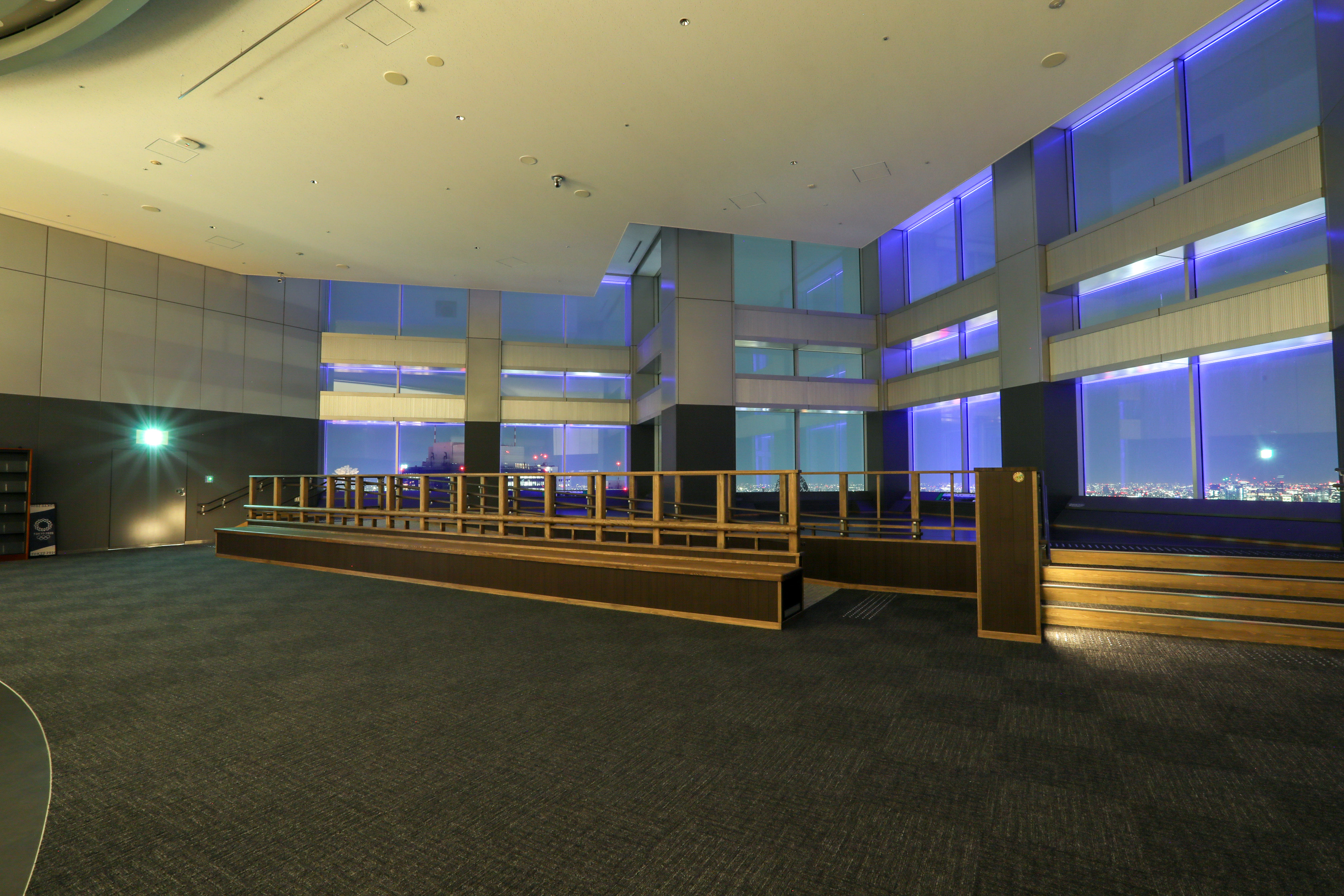Tokyo 2025 Deaflympics (Part 2): Overcoming Limited Public Awareness
“Do You Know the Deaflympics?” blared the headline of a feature story in the influential Japanese newspaper Asahi Shimbun last November, one year out from the Tokyo 2025 Games. “Low public awareness is a challenge,“ the article said, highlighting an anti-disaster drill in which deaf and hearing children practised non-verbal communication together.
With media coverage and promotional events increasing in the run-up to the Games, public awareness in Japan of the Deaflympics has risen from below 20% to 38.4% in four years, according to a survey published in July by the Nippon Foundation Para Sports Support Center. But it still pales before the 95.5% awareness rate for the Paralympics.
The Deaflympics aims in part for “uniting people with universal communication,” according to the Games Foundation Plan of the local hosts led by the Tokyo Metropolitan Government (TMG) and the Japanese Federation of the Deaf.
The plan says the Games strives to “promote understanding of expressions in sign languages and utilize various digital technologies.”
In February last year, the TMG released a fun-filled dance music piece for small children, demonstrating sign language phrases such as “How are you,” “Thank you,” “Go for it,” “You’re okay,” “Congratulations” and “Deaflympics.”
Video: Sign-language dance music for children ‘Shuwa Shuwa Deaflympics’
More events have followed to promote sign language, including International Sign (IS)—a tool that combines elements from different national sign languages and enables signers from different countries to communicate with each other.
Timely enough, Japan enacted a law in June to promote the use of sign language, following a unanimous vote in parliament to support the upcoming Deaflympics.
In the same month, the Japanese Federation of the Deaf completed a series of sessions to train 109 International Sign interpreters and 142 Japanese Sign Language interpreters. This program was aimed at strengthening collaboration between International Sign interpreters, who are deaf, and hearing-able interpreters of Japanese Sign Language. The two types of interpreters work in pairs on site during the Games.
Sign language training by the Japanese Federation of the Deaf:
https://www.jfd.or.jp/en/2025/07/07/pid2263
Helping Deaf People ‘See and Feel’ Sounds of Venues
In parallel, technologies have been developed to transform Deaflympic venues into places where “people can see and feel sounds”, according to an organizational plan.
Multilingual speech-to-text apps and transparent displays enable venue staff to guide athletes and spectators regardless of their hearing abilities. In-venue announcements are displayed in text as well.
A transparent multilingual speech-to-text display
At the table tennis venue, sounds from competitions are translated into onomatopoeic words, such as “Woo Hoo” and “Clap,” which pop up on screens.
Onomatopoeic words on screen at the table tennis venue
By wearing “smart glasses,” spectators at the swimming pool see information about the races in progress. At the judo arena, a necklace-shaped device simulates vibrations from the tatami mat.
A necklace-shaped device to simulate vibrations from the judo mat
Who to watch at Tokyo 2025
Who are the Deaflympians stars, present and past? Some of them have competed at both the Olympics and Deaflympics. Some have to pay for their Deaflympic tours themselves because countries like the United States and Britain offer little government funding to deaf sports. With ample official support, Ukrainian competitors give all they have to keep their war-torn country at the top of the Deaflympic medal table.
At the time of this writing, it is not clear who are the active Deaflympians coming to Tokyo with Olympic experiences. Historically, more than two zones of people have competed in both the Olympics and Deaflympics, according to research by the Tsukuba University of Technology, a Japanese institution for deaf and/or blind students, and other entities.
Among them is South African swimmer Terence Parkin, 45, who retired from competition after winning 29 Deaflympic gold medals and the 200m breaststroke silver at the 2000 Sydney Olympics.
The United States fields a 13-strong Deaflympic swimming team, including Matt Klotz, 29, who has won 22 medals, 10 of them gold, in the last three Deaflympics. He plans to compete in 13 races in Tokyo, giving him a chance to have a crack at Parkin’s Deaflympics record of 34 medals.
“It will definitely be a big challenge, which I love because it won't come easy, and I’m very motivated to chase my goal,” Klotz told the goldcountrymedia.com about breaking the record.
But first of all, Klotz needed to secure about 10,000 dollars to cover his own expenses for travel, lodging, and equipment for his fourth Deaflympics. Popular for his role in a reality TV show since 2023, the swimmer has raised funds through a crowdfunding platform. Deaflympic sports do not receive financial support from the US Olympic Committee or federal government, while Olympic and Paralympic sports do.
On the other hand, Ukraine’s Ministry of Sport and Youth signed a directive on economic criteria in December, which in part ensures that deaf athletes continue to be supported equally as Olympic and Paralympic hopefuls in training, competition, and resources allocation, according to the Ukrainian National News agency.
Ukraine swept to the top of the medal table at the 2022 Summer Deaflympics in Caxias do Sul, Brazil, and at the 2024 Winter Olympics in Erzurum, Turkey. Ukraine took over Russia in both Games after the International Committee of Sports for the Deaf banned Russia for its 2022 invasion of Ukraine.
Sprinter Yamada Maki, 28, carries the hope of host nation Japan with his collection of seven medals from the 2017 Deaflympics and the 2024 World Deaf Athletics Championships. Three of the medals were gold in the 200m and 4X100m relay at the Deaflympics and the 4X100m at the worlds. He missed most of the races at the 2022 Deaflympics because the Japanese delegation withdrew from competition after some of its athletes were infected with the coronavirus.
A TOKYO 2025 DEAFLYMPICS poster featuring Japanese competitors
Yamada Maki (right) and Kamezawa Riho (left)
Yamada, who was born of a Japanese father and British mother and doubles as an actor with an occasional role of a hearing person, is ready to go for gold at home. “Delivering results can have an impact on society,” he told the metropolitan daily Tokyo Shimbun. ”I want to convey that there are all kinds of people among those who cannot hear.”
“I hope we will become a society that embraces diversity,” Yamada said, ”where deaf people and sign language are a normal part of everyday life.”
An interview with Japanese sprinter Yamada Maki in November 2024 on TOKYO FORWARD 2025 :
https://www.tokyoforward2025.metro.tokyo.lg.jp/en/player/maki-yamada-deaf-athletics-dual-role-of-athlete-and-performer-wants-to-win-the-gold-medal-again-in-tokyo_t/









Recommended for You
New Year Countdown 2026: Tokyo Dazzling With Light, Sound and Projection Mapping
December 26, 2025
Tokyo 2025 Deaflympics Paves the Path to an ‘Inclusive Society’
December 26, 2025
Invitations Open for the Tokyo-London Financial Seminar 2026
December 19, 2025
Tokyo’s Good Old Phone Booths Morphing Into Innovative Wi-Fi Hotspots Via OpenRoaming
December 26, 2025
Tokyo Marathon 2026 Related Event “TOKYO MARATHON 2026 RUNS: INTO KK”
December 24, 2025
Startup Aims to Launch a Space Economy
December 19, 2025
Fun After Dark: Shinjuku Neon Walk
December 12, 2025
An Interview with Florence Chua: Preparing Tokyo for World-Class Business Events
December 11, 2025
Mokumeganeya’s Pursuit of Innovation in Metalworking and the Creation of New Value
December 10, 2025
Sharing Traditional Edo Culture Through AI
December 10, 2025